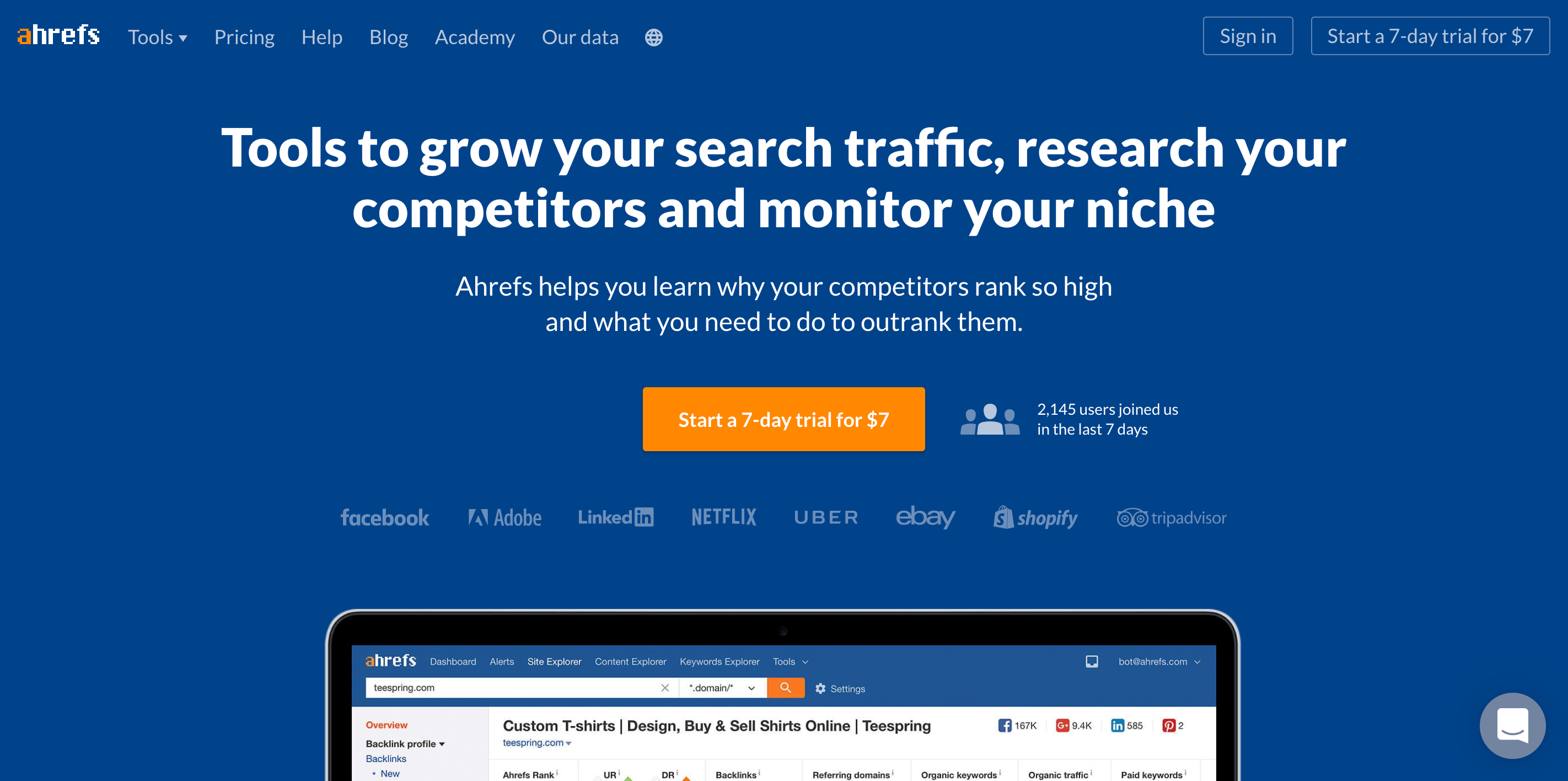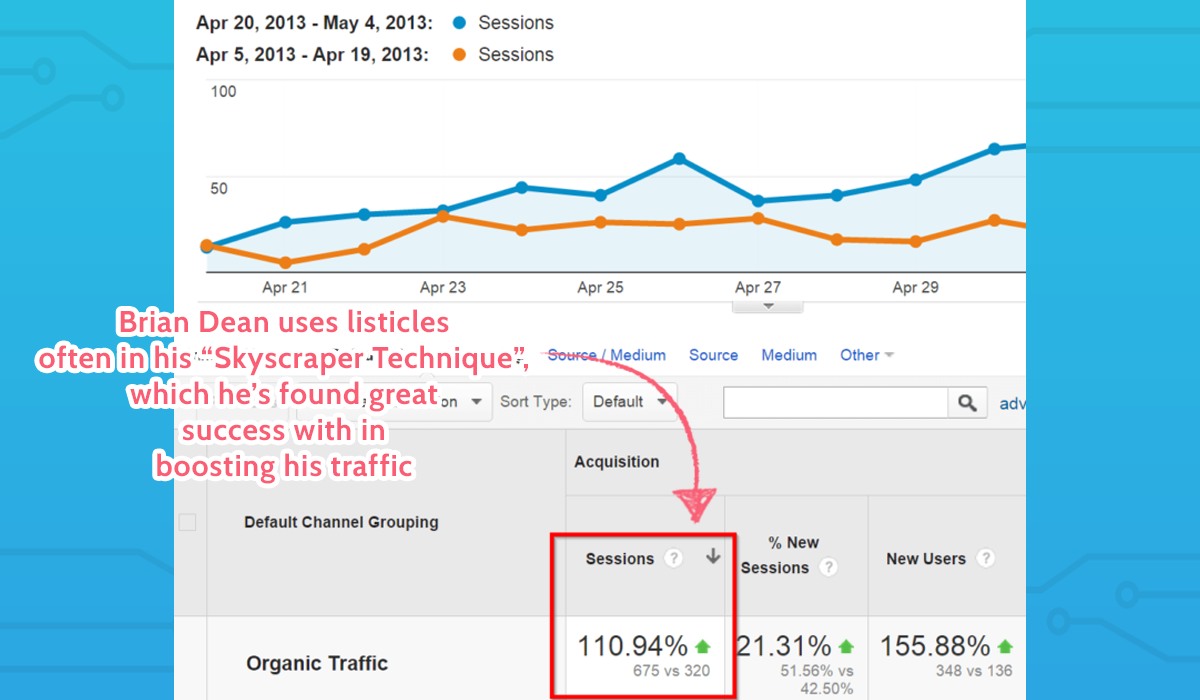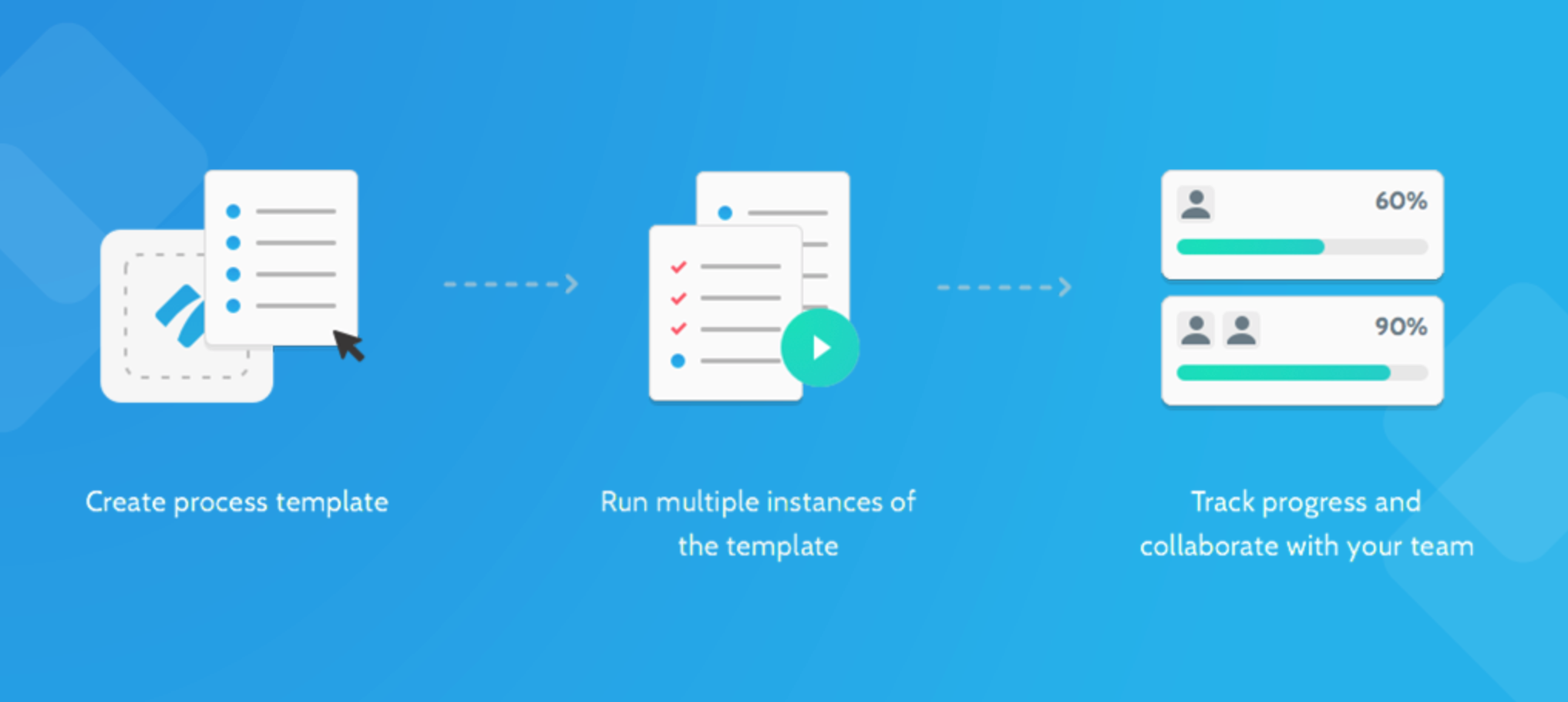
This is a guest post from Martha Jameson. As an educator at PhDKingdom.com and AcademicBrits.com, Martha found her calling as a writer, after pursuing web design and management. Her main goals are to share her experience, motivation and knowledge with her readers.
Link building has been a contested subject in SEO circles, not least because of the amount of speculation that goes into figuring out what factors are most important for securing you a top SERP spot.
Despite the controversy around Google’s search algorithm, a great deal of research has actually gone into figuring out what’s happening under the hood. At this point, we can be fairly sure that link building is a significant factor in the SEO of your website.
In fact, it’s actually quite difficult to get your website ranking without the help of link building.
SparkToro’s recent survey of over 1,500 professional SEOs placed the quality of linking sites and pages as the second most important factor, out of 26. That’s a big deal.
Building links is all about linking your website to others, and theirs to yours. As you increase your links, you increase the ability for your readers to access more relevant data, thereby increasing your own website’s relevance.
You’ve got to approach link building seriously in order to use it to your utmost advantage. Search engines will crawl through each page of your website in search of this information.
When you do this right, you can help boost your website rankings and help more readers find and access your content.
Here are 10 of the most effective SEO link building tips of 2019:
- Start co-authoring!
- Check out competitor keywords
- Peek at your competitor’s backlinks
- Watch out for new competitor keywords
- Help a reporter out (HARO)
- Start a blog
- Treat your testimonials like backlinks
- Choose evergreen keywords and topics
- Master the skyscraper technique
- Recover your dead backlinks
- Bonus tip: Check Wikipedia’s dead links
- Using Process Street for effective link building
Start co-authoring!
 Requesting to co-author content with other websites is a great way to increase your backlinks. With the condition of backlinking back to your website, pitch some content ideas to different websites and offer to co-author content for them.
Requesting to co-author content with other websites is a great way to increase your backlinks. With the condition of backlinking back to your website, pitch some content ideas to different websites and offer to co-author content for them.
This is a great win-win situation, where you’re building the links you need to increase your SEO and the admin of the site you’re writing for will have a well-written piece of content for their readers, with very little being exchanged to obtain it.
And, not only will you have the benefit of increased links to boost your SEO with Google and other search engines, but you’ll also extend your reach to other audiences by putting your content and links in front of their eyes.
For example, Process Street accepts guest posts. This post is an example of a guest post.
Currently our blog receives over 500,000 page views a month and has an email subscriber base of 70,000+ that we send our best posts out to.
If relevant, guest authors will often incorporate links back to their domain, and as such the result is mutually beneficial for both parties involved.
Check out competitor keywords

If they were able to acquire these backlinks, there’s a good chance you’ll be able to compete with them for keyword dominance. It all starts with doing an analysis of your competitors backlinks, then trying to get those same links yourself.
There are tools that are specifically made to do this analysis for you, where you can create a report to discover common backlinks, as well as learning more about the sources and techniques being used by your competitors to get those links.
Tools like:
Backlink tools are great for uncovering a wealth of untapped keyword potential.
Peek at your competitor’s backlinks
 Just like keywords, your competition is a great source of backlink inspiration. This is quite tied in with the previous point, actually, and all of the same tools can be used.
Just like keywords, your competition is a great source of backlink inspiration. This is quite tied in with the previous point, actually, and all of the same tools can be used.
If you’re unsure where you should be linking out to for a better chance at scoring a reciprocating backlink (and if you’re not sure which are the main authority domains for your market) then checking out which backlinks your competitors are targeting is a great idea.
Typically you’ll find that there are a lot of websites that are commonly linked to, and these will likely have a high domain rating.
Because of their high status, it’s incredibly helpful to get a link from one of these authority websites.
Watch out for new competitor links!
You’ve got to be quick to react and adapt if you hope to build and maintain a strong SEO presence. Your reaction and the speed at which you have that reaction can seriously impact the success of your website.
Stay aware of the activities your competitor is engaged in and the new backlinks they are creating.
There are tools that you can set up to alert you when a new backlink has been added on a particular website. You can have it set so that an email notification is sent off to you with the listing of new backlinks.
One such tool is Google Alerts. This is a very powerful tool that you’ll be able to use alongside Google Analytics and the rest of your G Suite.
Help a reporter out (HARO)
The help a reporter out technique, or HARO for short, helps link those in the know with those who want to know.
The platform gives journalists a powerful database of sources to draw from. There are opportunities daily for sources to contribute and obtain media coverage.
Through the platform, you can work as a source to pitch story ideas to journalists and, in turn, get backlinks. The backlinks obtained through HARO are generally authoritative leaders in the industry.
Just register yourself on the website to being receiving source requests.
Start a blog
Blogging is a great technique to use in your link building. If you don’t already have a blog included on your website, get started right away.
When you write about relevant information, you can be rewarded with backlinks for providing authoritative content.
You may also choose to write blogs about the latest trending topics in your field. If these are new topics, there won’t be much information available, so you can take advantage of the fact that you’ll be one of the few resources providing this information.
“When you’re the first on the scene, you’re really the only one with any information, so naturally everyone will be drawn to you. Take advantage of the knowledge that you’ve got, along with the timing of being the first one on the scene,” – Arlen Sanders, an SEO writer at 1Day2Write and WriteMyX.
If you react quickly and can put together blogs that are relevant to these hot topics, you could become the go-to authority on that topic.
When this happens, you’ll see a huge jump in the number of backlinks from other websites.
Treat your testimonials like backlinks
When you’re able to work in conjunction with others, you can create a win-win situation, where both of you contribute to your mutual benefit.
When you’re able to provide feedback and testimonials for other businesses, you’ll be able to create a backlink and possible traffic through that testimonial, as well as foster a sense of trust with your customers.
Backlinks through testimonials generally have a better response and approval rate than other types of links, because they’re coming from an honest review of a product or service that someone is interested in hearing about.
People love honesty, and will feel a sense of trust if they know you’re being honest with them.
So, while you’re giving another company a valuable testimonial, you’re also getting a helpful backlink.
Choose evergreen keywords and topics
 If you’re trying to decide on which topics you’re going to write about, it’s a good idea to not just write about trending hot topics, but also include a good amount of evergreen topics and keywords.
If you’re trying to decide on which topics you’re going to write about, it’s a good idea to not just write about trending hot topics, but also include a good amount of evergreen topics and keywords.
These are the topics that will always generate interest and that people are always searching for information about, regardless of what the latest trends are.
“There are certain things that people will always be searching for, regardless of the newest trending topics. Including these ‘evergreen’ topics in your content can ensure that this content remains relevant beyond the trends,” – BritStudent and NextCourseWork content manager, Maria McCarty.
For instance, if you’ve got a blog about wedding planning, an evergreen topic may be “things to remember while planning your wedding.”
So, no matter what is currently trending in the wedding planning world, there will generally always be the same things you’ll want to remember when planning a wedding.
Generating consistent traffic over a long period of time is one of the best ways to get ranked higher in Google.
When trying to create content from your evergreen topic, remember that it’s got to be both valuable to the reader and interesting.
Make sure it’s easy to read, has tips that are actionable and is better and different than what the competitors are offering.
Master the skyscraper technique
 One of the most difficult techniques to achieve for link building, but one that is incredibly effective, is the Skyscraper technique.
One of the most difficult techniques to achieve for link building, but one that is incredibly effective, is the Skyscraper technique.
Coined by Brian Dean of Backlinko, this technique involves creating unbelievable content centering around one specific issue that people are facing in your field, then presenting viable solutions to that problem through the content you offer.
When you offer solutions that work and that people can actually accomplish, helping them solve the problem they’re facing, you can create a great deal of authority in the industry.
You can become the go-to source for this solution, generating a lot of backlinks based on the authoritative dominance you’ve demonstrated.
Recover your dead backlinks

Dead backlinks are never a good thing. All they do is tease a reader with your content, only to disappoint them with a 404 error.
This can happen sometimes if your pages change location or if the link has a spelling error in it.
For the most part, people aren’t motivated enough to keep searching for the proper link and will just move on to the next content link they can find.
“Having a redirect to another page or your homepage can help to keep the reader on your site and looking at your content. You can turn a potential loss of customer into a potential new convert simply by redirecting a dead link,” – link manager Denny Clark at Australia2Write.
In order to help identify the dead backlinks for your site, there are link recovery tools that will notify you of which pages you’re getting an error code for.
When you know which pages are causing the problem, you can begin addressing these by either recreating the pages or redirecting those links to the correct page.
Link recover tools can also detect other errors your backlinks may be having, such as timeout errors or invalid access errors, among others.
These tools are fairly simple to use, and usually just involve adding the URL into the tool to generate a report. Fixing the root problem of any backlink errors can help you avoid losing potential readers and customers.
Bonus tip: Check Wikipedia’s dead links
Wikipedia is viewed as a highly trusted site by Google.
For this reason, using them as a source for link building is a great idea, and can be highly effective.
But, if you take a closer look, you may find that there are a number of dead or broken links within the pages of Wikipedia.
A free tool, such as Wikigrabber, will crawl through the pages you identify, helping to pick out the dead links so you can fix them.
You can also use tools like this to search for keywords and add a citation on Wikipedia for the relevant pages.
Wikipedia generally instills a great deal of trust in readers, so even if you’re adding “No Follow” links, they’re worth adding. Google still takes this type of link into their ranking factors and organic search results.
Using Process Street for effective link building
 Link building has always been a hugely significant factor in the SEO of your website.
Link building has always been a hugely significant factor in the SEO of your website.
Although many believe this technique to be dead, Google search results continue to utilize this as one of the top factors in their ranking algorithm, and by all accounts this won’t be changing any time soon.
Process Street is a BPM software that’s designed to help you streamline repetitive processes. Like the process for building out all of your most effective link building strategies.
You can use checklists with powerful features like form fields, conditional logic, and dynamic due dates to make your life easier.
Check out this video for a quick introduction:
We’ve also got a whole bunch of premade SEO and marketing templates you can add to your account right now:
- On-Page SEO Checklist
- Technical SEO Audit
- Google Analytics Audit
- Product Launch Checklist
- UX Audit
- Social Media Manager Daily Checklist
- Social Media Influencer Outreach Checklist
- SEO Checklist: The Keyword Research Process
- New Affiliate Onboarding
- Advanced Content Promotion Checklist
- Peer-Editing Checklist for Bloggers
- Find Almost Anyone’s Email
- Submitting Content to Social Bookmarking Sites
- Daily Mention Tracking for Content Promotion
- Creating a Database of Influencers using Buzzsumo
- Scraping Broken Links with SEOSpider and Ahrefs
- Accepting, Formatting, Editing and Publishing a Guest Post
- PPC Audit Checklist
- PPC Daily Campaign Review Checklist
- PPC Weekly Campaign Review Checklist
- PPC Monthly Campaign Review Checklist
- Performance Marketing (PPC) Keyword Competition Analysis Checklist
- New Facebook Ads Creation Checklist
Simply sign up for a free Process Street trial today to give it a try.
When you’re able to connect your website through other sites and reach an entirely new audience, you elevate your reach potential exponentially.
The more readers that have access to your content, the more potential you have for customers.
And, as the cycle goes, the more customers, the more they will endorse you, leading to even more customers, and so forth.
The relevance of your website is directly linked to the backlinks you’re able to create. As search engines make their way through pages, they will scour the content of each of your pages.
When you’re properly leveraging each page you’ve got available, you can help boost your website rankings with Google, getting your readership up and having more eyes landing on your content.
By following these tips, you can help build effective SEO backlinks that will boost your online presence and authority in your specific industry.
Did we miss any tips? Do you have any specific strategies that you use as part of your daily link building workflow? Let us know in the comments below!







Oliver Peterson
Oliver Peterson is a content writer for Process Street with an interest in systems and processes, attempting to use them as tools for taking apart problems and gaining insight into building robust, lasting solutions.